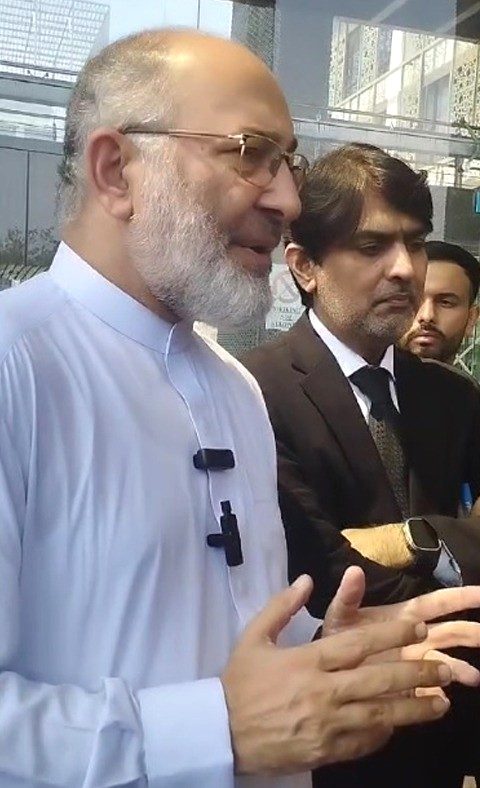Dr. Aafia Siddiqui and her children were handed over to US agencies by the Sindh government and ISI, a claim that has prompted the IHC to demand answers

By Ahsan Mughal
ISLAMABAD: In a significant development, the Islamabad High Court (IHC) has raised serious questions regarding the circumstances under which Dr. Aafia Siddiqui, along with her children, was handed over to American agencies. Justice Sardar Ejaz Ishaque, presiding over the single bench of the IHC, directed the government to clarify the authority under which this transfer was conducted, sparking renewed attention on the controversial case.
Advocate Imran Shafique, representing Dr. Fowzia Siddiqui, Aafia’s sister, addressed the media following the Monday hearing. He emphasized the importance of the session, noting that the honorable judge raised fundamental questions that have long remained unanswered. Shafique disclosed that Clive Smith, Dr. Aafia Siddiqui’s American lawyer, had filed a declaration in the U.S. courts seeking clemency for Aafia on humanitarian grounds. This declaration outlined the circumstances surrounding Aafia’s kidnapping and subsequent transfer to the U.S., implicating both the Sindh government and Pakistan’s Inter-Services Intelligence (ISI).
According to the declaration, Dr. Aafia Siddiqui and her children were handed over to U.S. agencies by the Sindh government and ISI, a claim that has prompted the IHC to demand answers. The court questioned the deputy attorney general and officials from the Ministry of Foreign Affairs (MoFA) on these serious allegations, expressing concern over the lack of clarity and transparency in the matter. Justice Ishaque further asked why the court should not order an inquiry into the issues raised in the declaration, suggesting that a report be sought from the Director General of ISI regarding the evidence that justified the transfer of Aafia and her children to U.S. custody.
The court gave the government a four-week deadline to make a decision regarding a multilateral agreement with the U.S. on the repatriation of prisoners. The government officials informed the court that while a bilateral agreement with the U.S. is under consideration, formal talks have yet to begin. Advocate Janjua, representing the government, highlighted a significant obstacle in the repatriation process, noting that the clemency motion is often dismissed on the grounds that Aafia was legally handed over to the U.S. by the Pakistani government, thereby complicating efforts to secure her release.
#IHC, #AafiaSiddiqui, #USTransfer, #SindhGovernment, #ISI, #LegalInquiry, #HumanRights, #JusticeIshaque,



